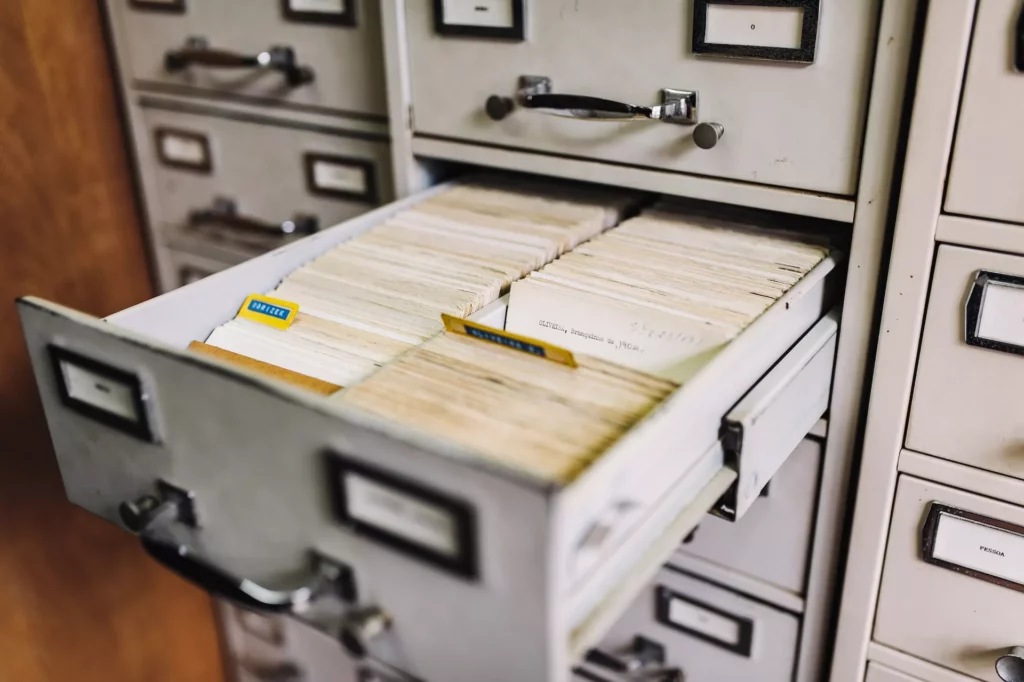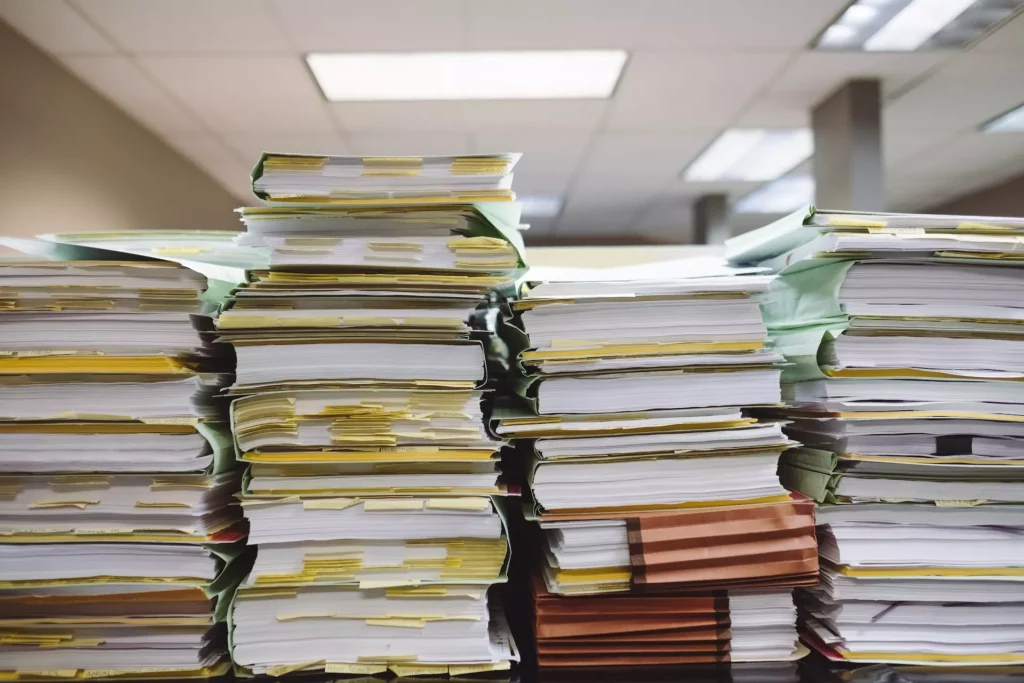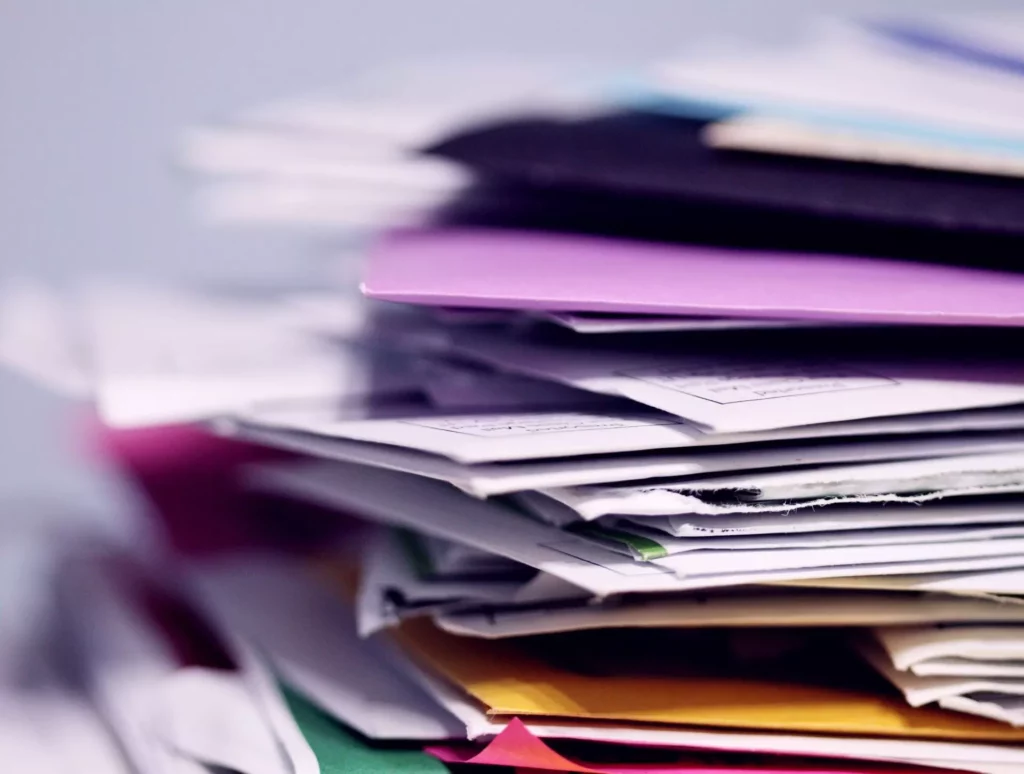You went into business because you had a great idea or a passion to provide a service. You probably weren’t thinking, “Oh boy, I can’t wait to store my business records.” Yet, records retention is essential to managing your business’s information and ensuring compliance with legal, regulatory, and operational requirements.
What is a business record?
Many items qualify as business records. Typically, records refer to any documents, files, or information you create, receive, and maintain as part of your business operations. Depending on your industry and where you’re located, you may need to retain physical documents, electronic files, emails, financial records, employee records, contracts, and more.
Factors that affect business records retention
Several factors can influence your business record retention practices. These may vary depending on the nature of your business, industry, and location.
Legal and regulatory requirements
Laws and regulations specific to your industry and jurisdiction dictate the retention periods for certain types of records. These requirements may specify the types of records to be retained, the duration of retention, and the format in which records should be stored.
Compliance with these requirements is crucial to avoid legal penalties. Stay updated on applicable laws and regulations to ensure proper record retention.
Statute of limitations
A statute of limitations is the time period during which legal actions can be taken. In some cases, you may need to retain records for the duration of the statute of limitations to protect your business from potential legal claims or disputes.
In some cases, legal holds may be placed on certain records due to ongoing litigation, audits, or investigations. The hold suspends your standard retention and disposal procedures.
Privacy and data protection laws
With the rise in privacy concerns, data protection laws govern the collection, storage, and retention of personal information in several contexts. If your business goes global, you may also need to abide by the regulations established in other countries where you are doing business, for example, the European Union’s General Data Protection Regulation.
Industry-specific requirements
Certain industries, such as healthcare, finance, and legal services, have specific record retention requirements. These guidelines reflect the sensitive nature of the information these industries handle. Compliance supports customer privacy protection and maintains professional standards.
Customer and contractual obligations
Your agreements with customers or business partners may stipulate record retention requirements. This could be to ensure compliance with service-level agreements, contractual obligations, or dispute-resolution processes. You’ll need to review your contracts to identify any specific record retention clauses.
Tax and financial requirements
Tax authorities often require businesses to retain financial and tax-related records for a specified period. This ensures compliance with tax laws, enables accurate financial reporting, and facilitates audits or reviews by tax authorities.
Business needs
Your business could also have practical reasons to retain records. You might need to reference historical information or need documentation to support decision-making processes, track performance, and analyze trends.
Retaining records for longer periods may also help your business mitigate potential risks or address future legal challenges. For example, many organizations retain records related to contracts, intellectual property, personnel matters, and other critical areas in case of disputes or investigations.
What business records should you keep?

It’s important to customize your recordkeeping practices based on your specific industry regulations, legal requirements, and operational needs. Nevertheless, this section lists common business records you may need to retain.
Financial records
The financial records a business typically needs to retain include:
- Financial statements (balance sheets, income statements, cash flow statements)
- General ledgers and journals
- Bank statements and reconciliation records
- Tax returns and supporting documentation
- Invoices and receipts
- Payroll records (payroll registers, tax withholdings, wage, and hour information)
- Expense reports and reimbursement documentation
Legal and corporate business records
You may also need to retain an array of legal and corporate records including:
- Business licenses and permits
- Articles of incorporation and bylaws
- Shareholder agreements
- Contracts and agreements
- Intellectual property documentation (patents, trademarks, copyrights)
- Minutes of board meetings and shareholder meetings
- Legal correspondence and dispute resolution records
- Insurance policies and claims documentation
Learn more about corporate records.
Human resources records
Your HR team will have records it needs to retain, such as:
- Employee personnel files
- Employment contracts and offer letters
- Resumes and job applications
- Performance evaluations and disciplinary records
- Timesheets and attendance records
- Benefits and retirement plan records
- Training and development records
- Workplace policies and procedures
Customer and sales records
The customer care and sales teams for your business typically have valuable records as well. You may need to retain documents such as:
- Customer contact information and transaction history
- Sales orders and invoices
- Contracts and agreements with customers
- Marketing and advertising materials
- Customer correspondence and communication records
- Customer feedback and complaint records
Operational business records
Recording your operational policies and procedures, you may also need or want to retain:
- Supply chain and inventory records
- Production and manufacturing records
- Quality control documentation
- Maintenance and service records
- Equipment and asset records
- Vendor and supplier information
Compliance and regulatory records
Your business could be mandated to retain records such as:
- Licenses, permits, and certifications
- Safety and environmental reports
- Compliance assessments and audits
- Regulatory filings and documentation
- Product testing and quality assurance records
IT and data management business records
Your technology also has essential records to retain including:
- IT infrastructure documentation
- Network and system logs
- Data backup and disaster recovery plans
- Data privacy and consent records
- IT service contracts and agreements
What business records you don’t need to keep?
After that listing of so many records you may need to keep depending on your industry, location, and legal requirements, you may think it’s best to simply save everything. However, you don’t need to go that far.
There are records you may not need to retain for long periods. These include:
- Routine correspondence (e.g., everyday emails, internal memos)
- Drafts and working documents or duplicate copies (you may only need to keep the final version)
- Transitory information (e.g., temporary notes, messages, or notifications that have only short-term value)
- Outdated policies and procedures (you may only need to retain current versions)
- Marketing and promotional materials (e.g., flyers, brochures, advertisements, and promotional items)
- Routine transaction records (e.g., sales receipts, vendor invoices, and canceled checks, once relevant financial reporting requirements are fulfilled)
Recommended business record retention periods

Appropriate retention periods vary depending on the type of record and applicable regulations. You’ll need to retain some records for a few years. Others you may need to retain for several decades. The following captures some recommended business record retention periods.
Financial records
Plan to keep your financial statements and general ledgers permanently to serve as a historical reference. You’ll keep payroll records for three to seven years, depending on your location.
Keep tax returns and supporting documents for three to seven years to comply with the Internal Revenue Service. Employment tax records should be kept for at least four years after the date that the tax becomes due or is paid, whichever is later.
In addition to the current copy of your insurance policy, maintain your expired policies for 10 years. If you’ve made any claims on your insurance, keep that documentation permanently.
Legal and corporate records
Typically, you’ll keep your articles of incorporation and bylaws, as well as your shareholder agreements, permanently. Other contracts and agreements may be held for the duration of the contract plus a reasonable period for any potential legal claims. You’ll want to retain your intellectual property (IP) documentation as long as the IP remains active and relevant.
Human resources records
Keep current versions of your workplace policies and procedures. Retain employment contracts for the duration of the individual’s employment plus a reasonable period of time afterward in case of legal issues.
Performance evaluations and disciplinary records are typically held with the employee’s personnel file for three to seven years after termination of employment. If an employee was injured or filed a claim against your business, you’ll keep those files for 10 years.
Even job applicant information should be properly stored and secured for at least three years. That’s true even for individuals who didn’t get the job.
Under the Fair Labor Standards Act, employers must keep payroll records for three years.
Customer and sales records
Depending on your location and business needs, you might retain customer contact information and transaction history for three to seven years. For tax and financial purposes, you will likely keep sales orders and invoices for seven years.
Operational business records
Your maintenance and service recordkeeping will depend on equipment life and terms of warranty. Otherwise, you’ll typically retain supply chain, inventory, production, and manufacturing records for three to seven years.
Compliance and regulatory records
Retain any licenses, permits, and certifications while valid. Keep them also to allow time for the renewals to arrive.
Your regulatory filings or safety and environmental reports will need to be retained as well. The duration varies across industries.
IT and data management records
Retain and regularly update your IT infrastructure documentation as well as your data backup and disaster recovery plans. If you have active data that requires consent, keep those records as long as the consent is valid.
Best practices to maintain business records
Identifying retention requirements and documenting the specific retention periods can help protect your business. At the same time, the following best practices can improve your recordkeeping and compliance.
Know your business records
You can’t properly protect or retain records you don’t know you have. Do an overall audit to understand what records you create, receive, and maintain.
Then, create a document retention schedule. Outline your specific types of records, retention periods, and disposal methods. This can provide a centralized reference for managing and tracking records throughout their lifecycle. Establishing a schedule also helps ensure consistency, compliance, and efficient use of storage resources.
Establish recordkeeping policies
Put policies in place regarding your records. These policies should outline:
- Types of records to be retained
- Retention periods
- Storage methods
- Access controls
- Backup procedures
- Disposal processes
By putting these down in writing and communicating them to your staff, you can ensure consistent and organized records management. Also, plan to regularly review and update your policies to adapt to changes in regulations or business requirements.
Research the right types of storage
Different types of records need various storage methods. Determining the appropriate storage takes into consideration factors such as:
- Security: You might store physical records in secure filing cabinets or off-site storage facilities. Electronic records can be stored on secure servers or in cloud-based solutions.
- Accessibility: Consider how often you need access and who will be given access to the stored records.
- Preservation: A physical storage environment needs to protect against physical damage, theft, and unauthorized access. Climate control may also be necessary.
Control access to business records
You want to easily access your records when needed. Yet you must also have proper security measures in place to protect sensitive information. To maintain the confidentiality, integrity, and security of sensitive business information, limit access to authorized individuals.
Establishing access levels and permissions based on job roles and responsibilities can help prevent unauthorized disclosure or alteration of records. Using two-factor authentication, biometrics, and data encryption techniques can further safeguard your data.
Properly dispose of records
Once the retention period expires, follow your established process for secure destruction and disposal of records. This may involve shredding physical documents or using secure methods to erase electronic files. Proper disposal is essential to protect sensitive information and maintain compliance with privacy laws.
Business records retention simplified
The requirements for different types of records will vary based on legal and industry regulations and your operational needs. Keeping abreast of what’s required and knowing what you need to keep or not and for how long can help your business avoid issues in the future.
These basics have provided a general overview. Still, you may want to consult legal counsel or records management professionals to ensure your business’s compliance with specific laws and business regulations.

